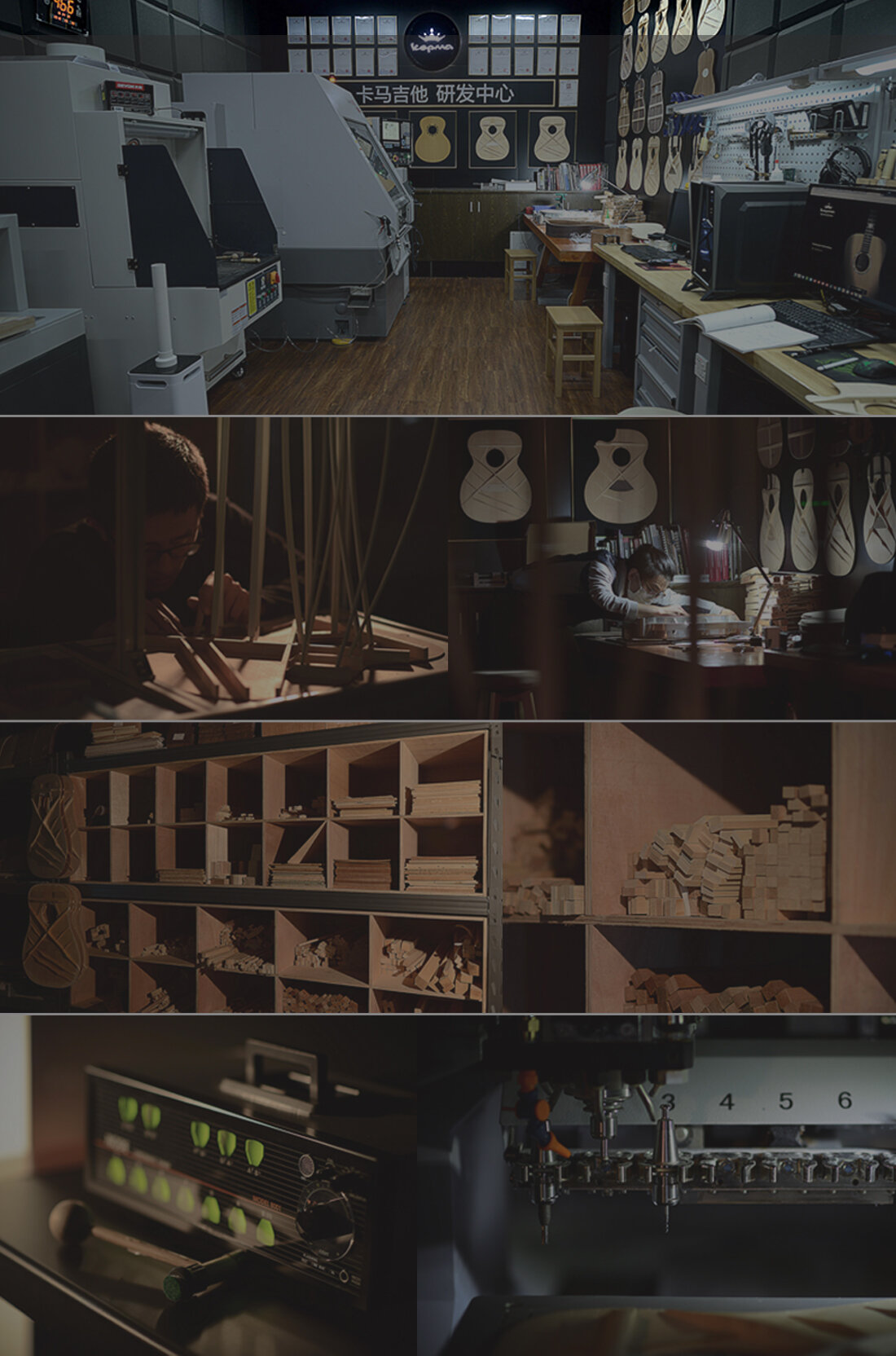Kepma K3 Series Guitars
The K3 Series of Guitars from Kepma represents the ultimate “entry level” guitar line built using the industry’s most advanced manufacturing technologies. The same methods, techniques and equipment are used to produce the Kepma Elite Series Guitars — superior build, superior price.
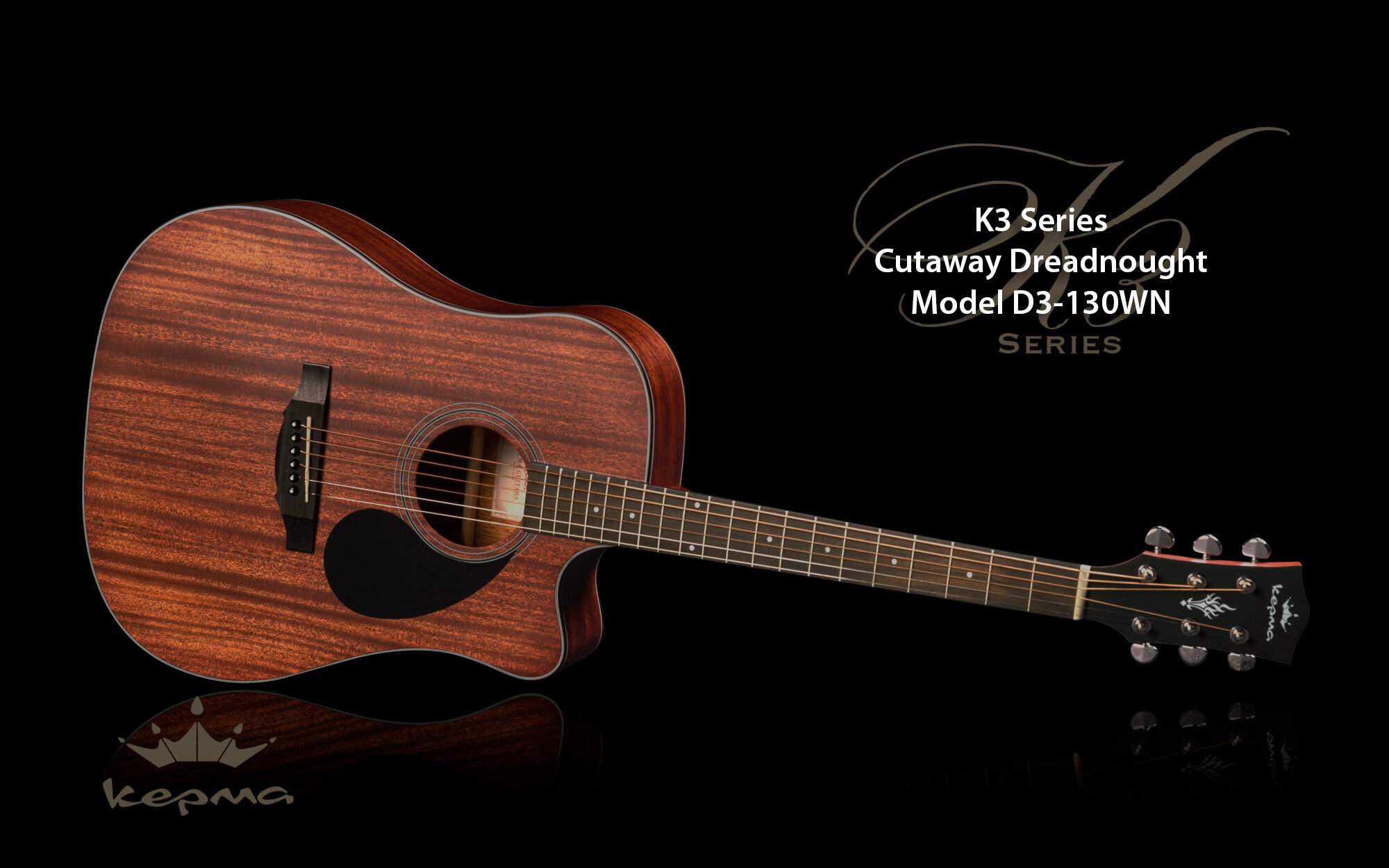
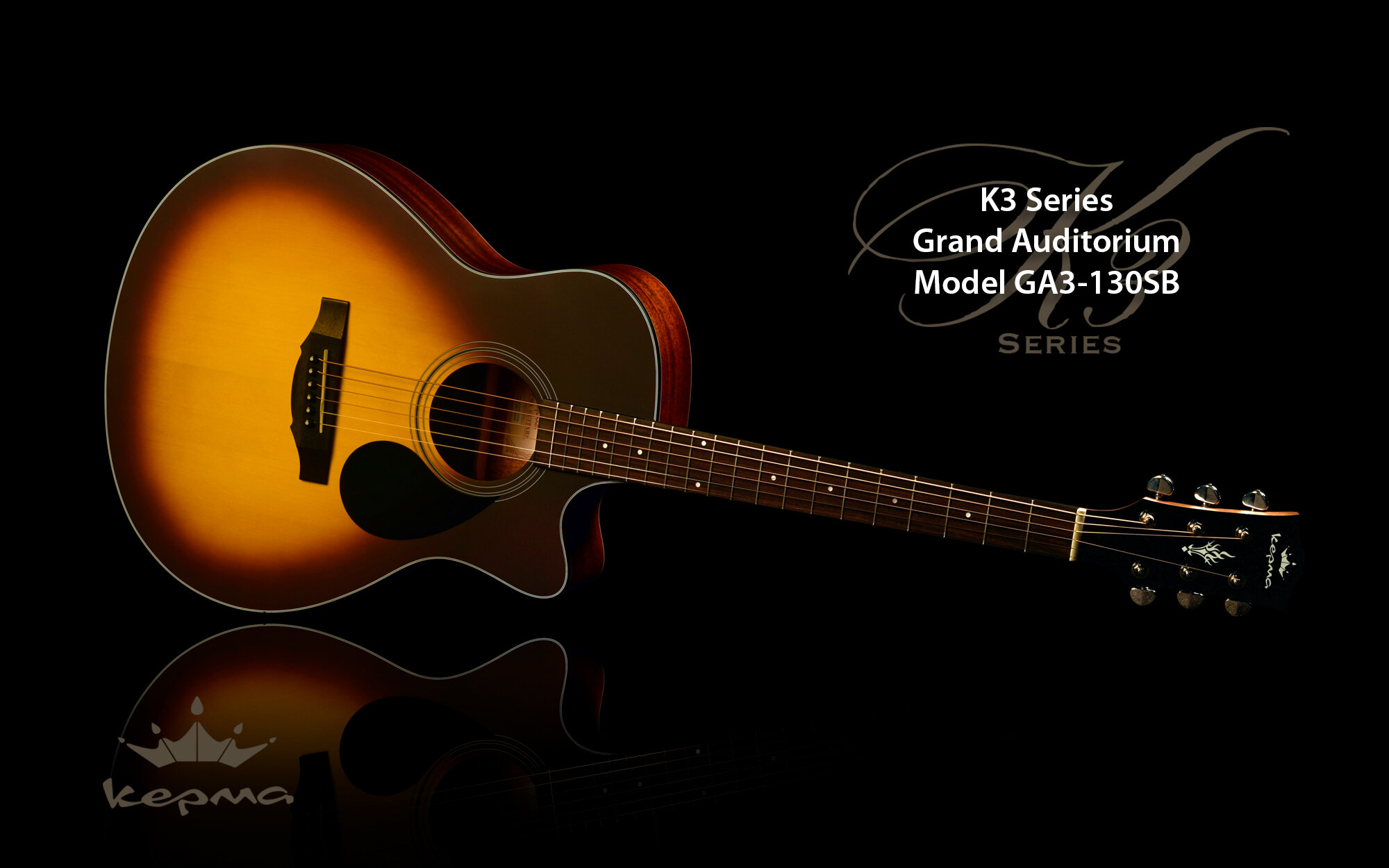
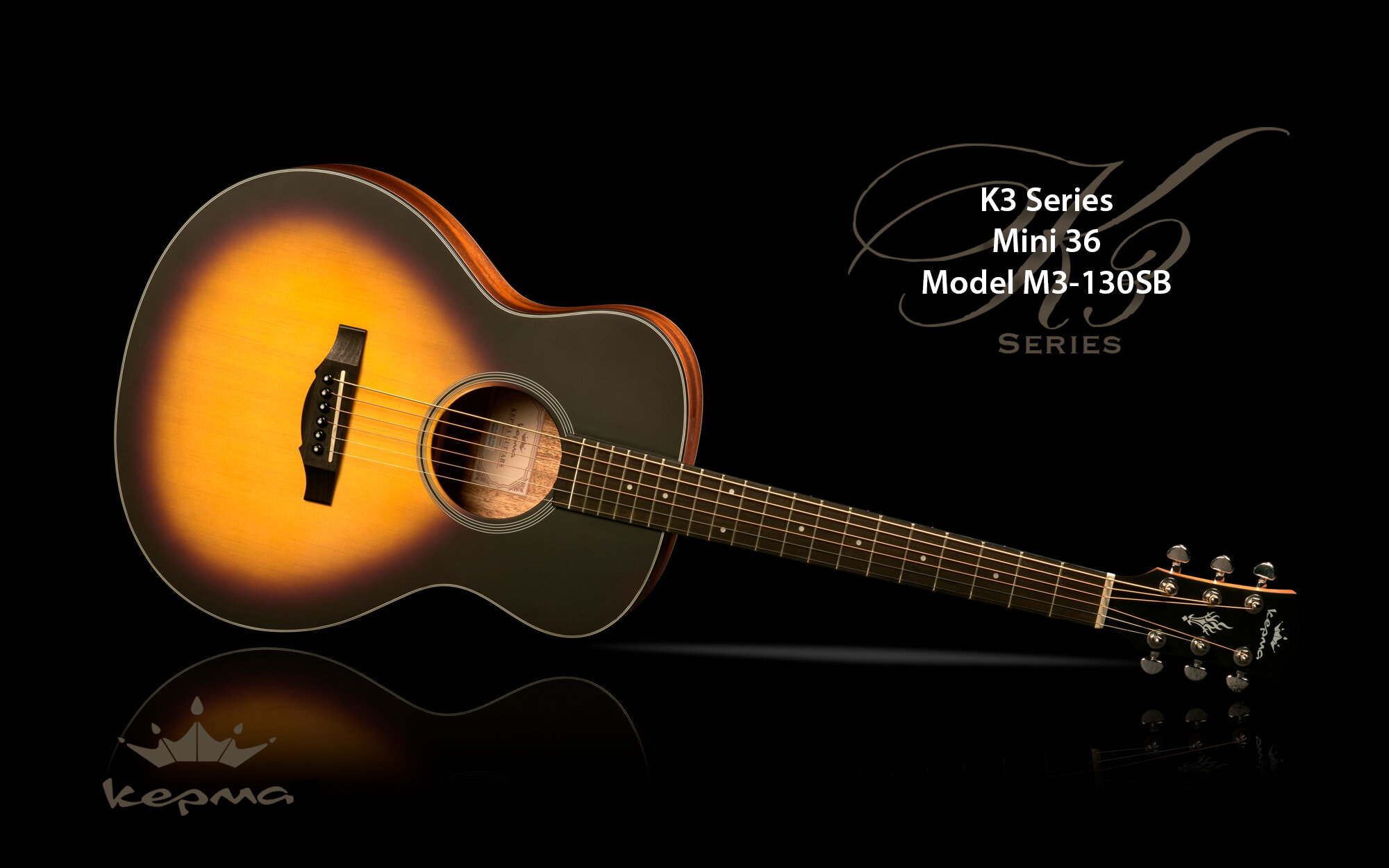
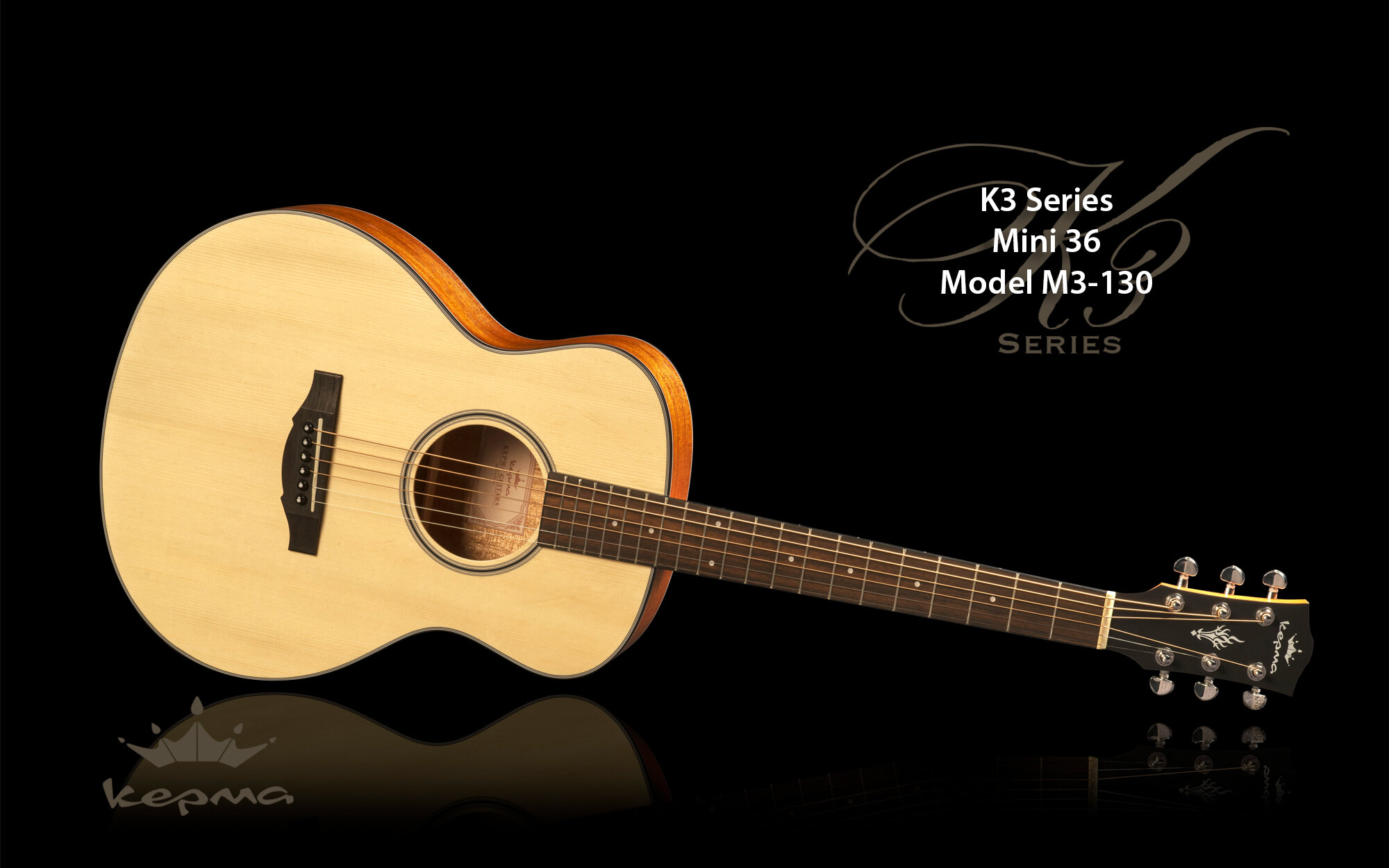
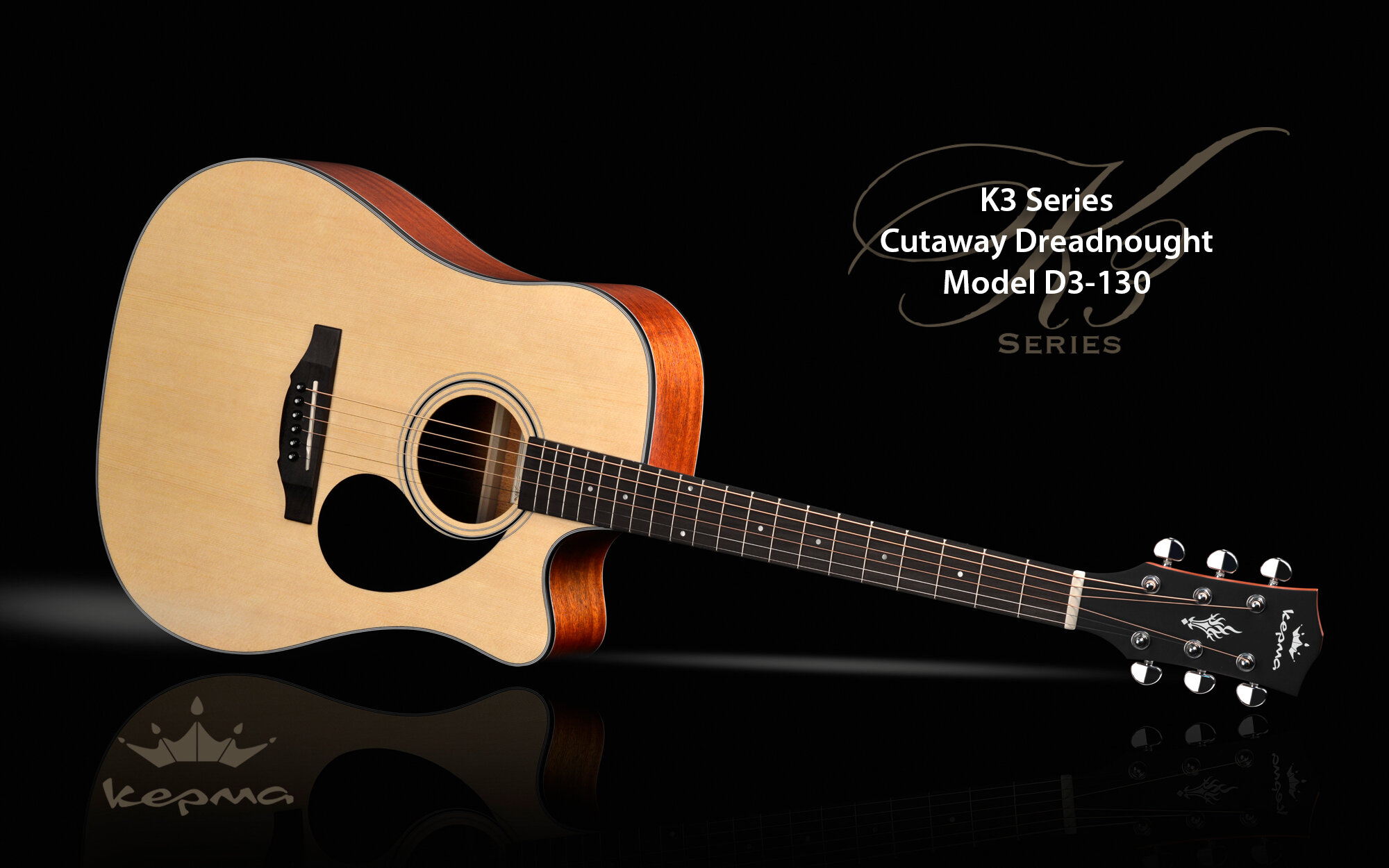
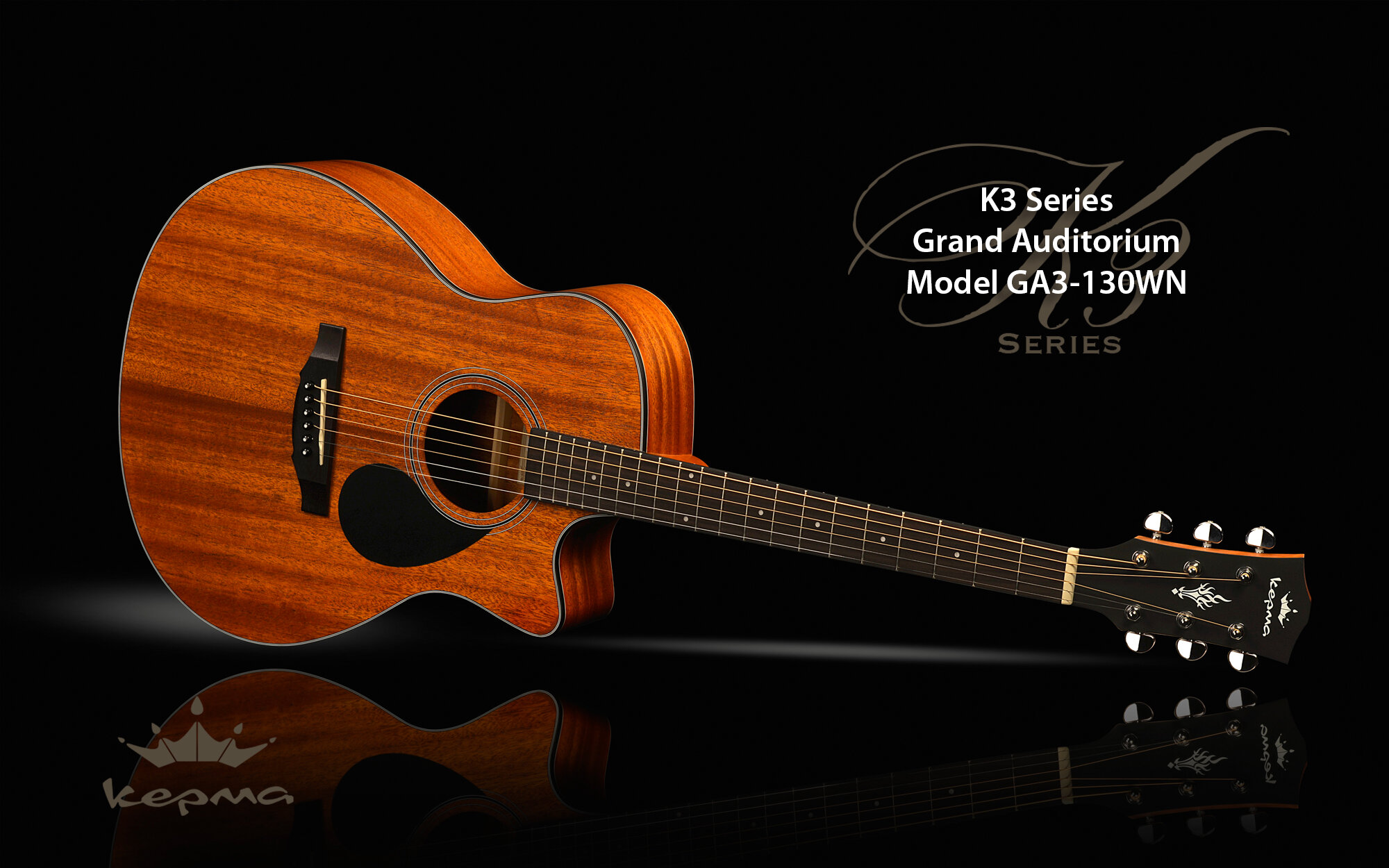
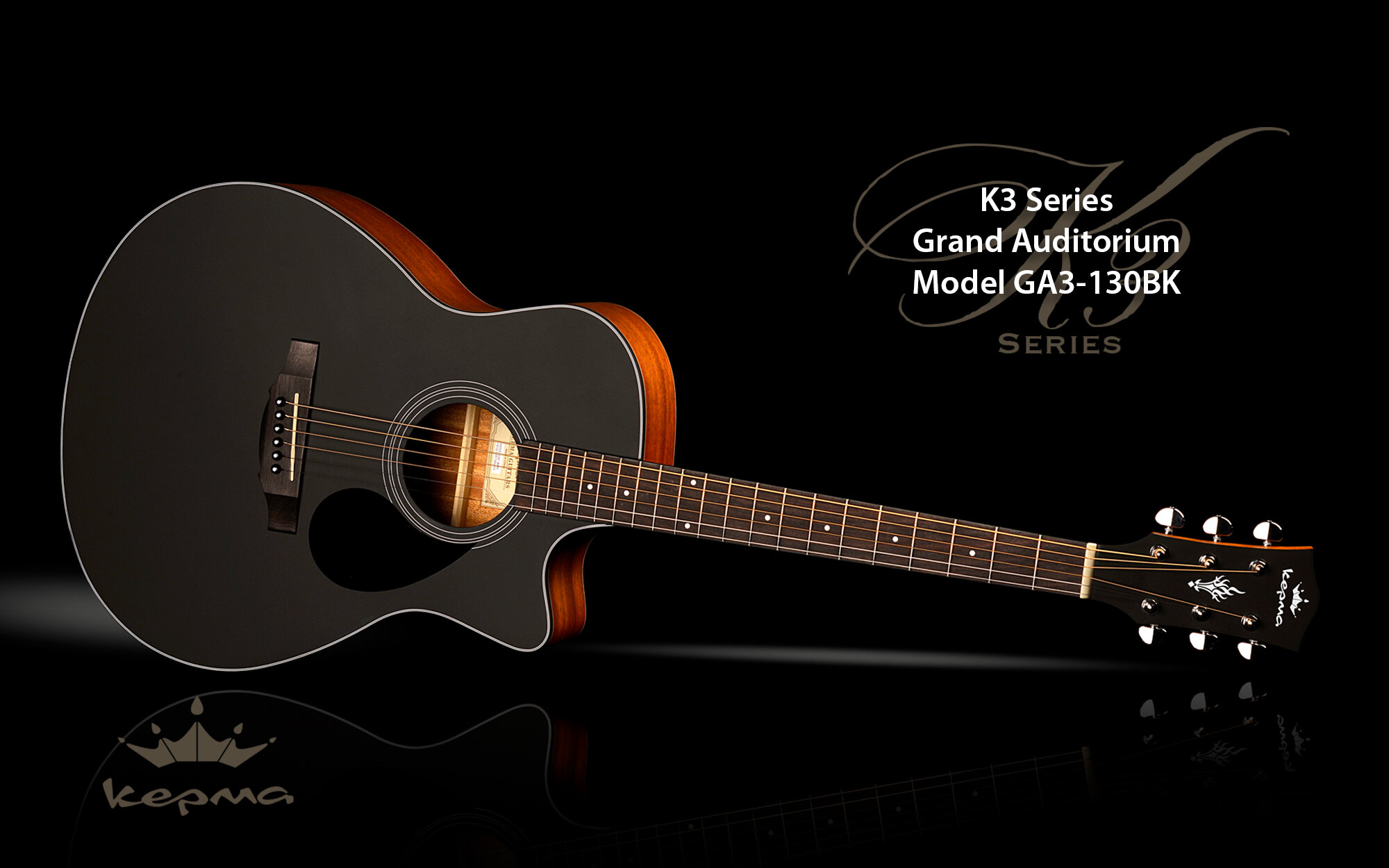
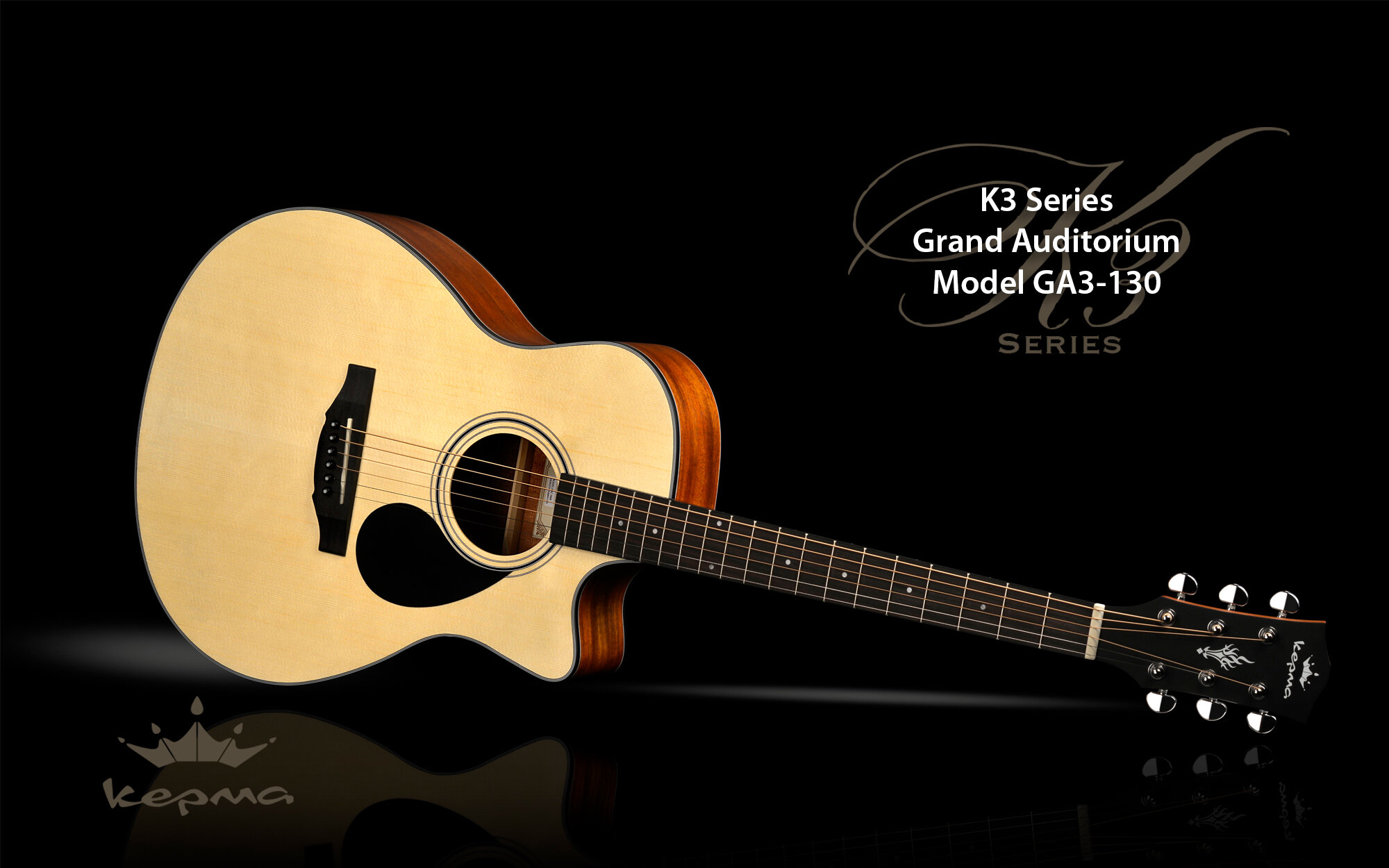
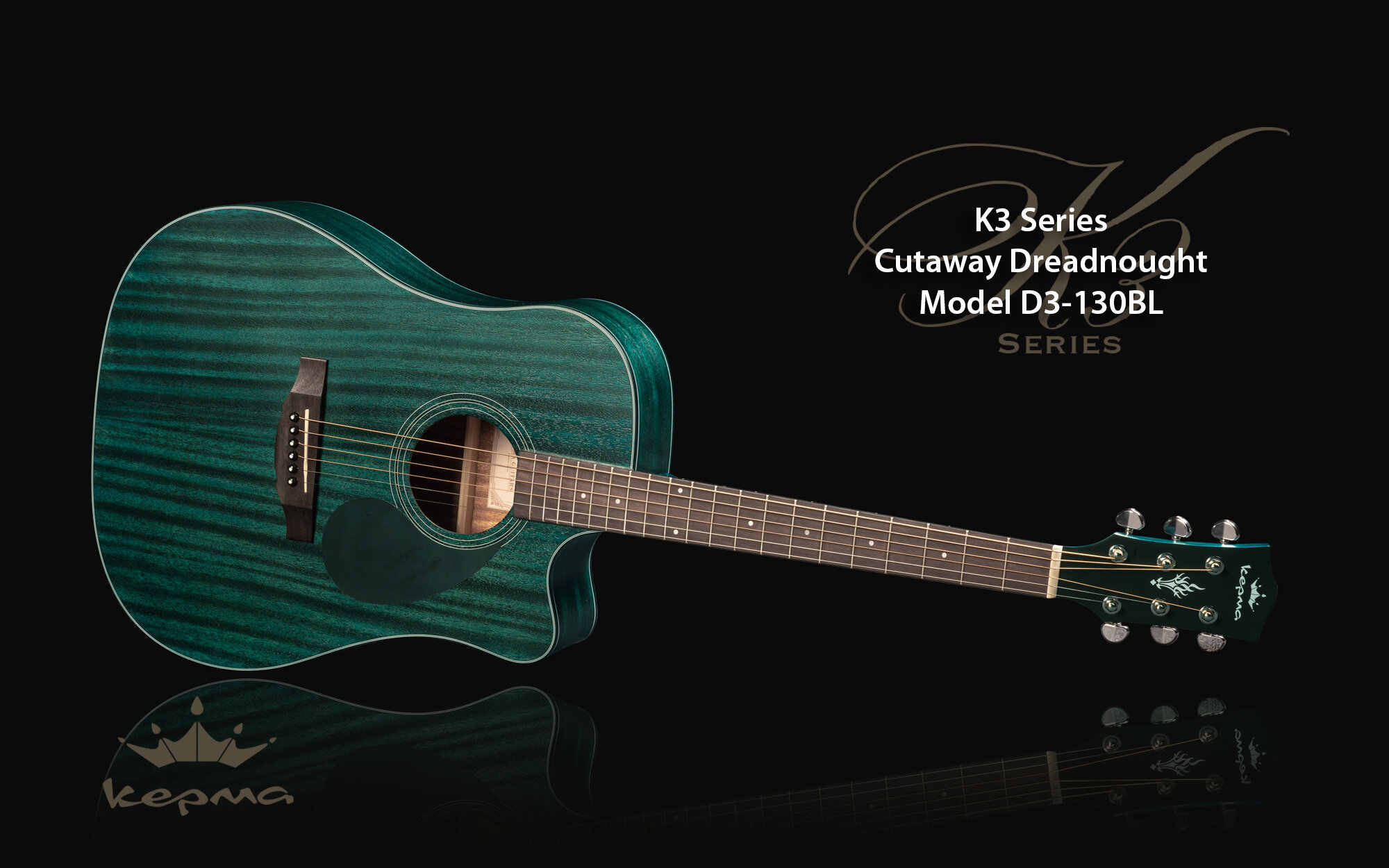
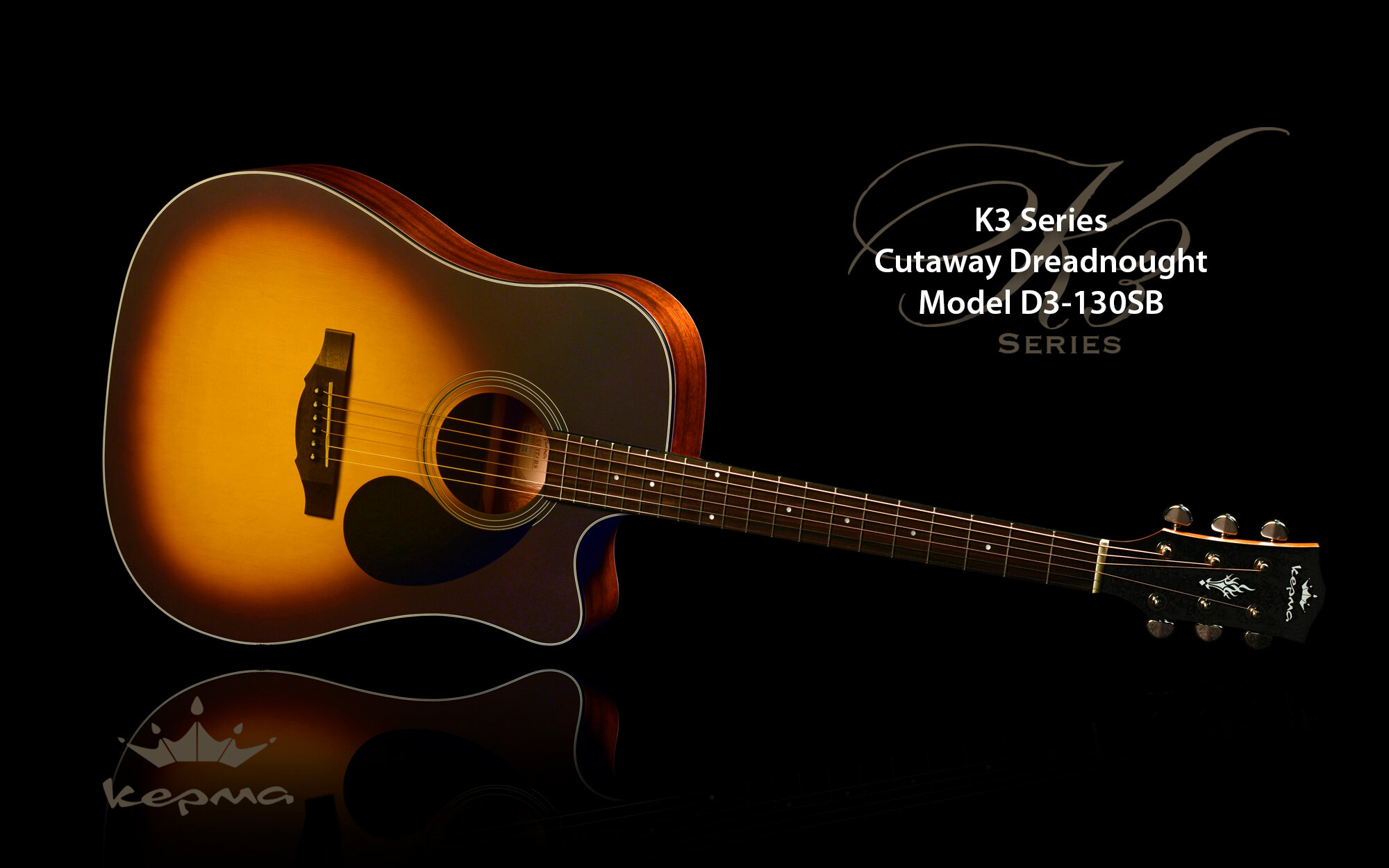
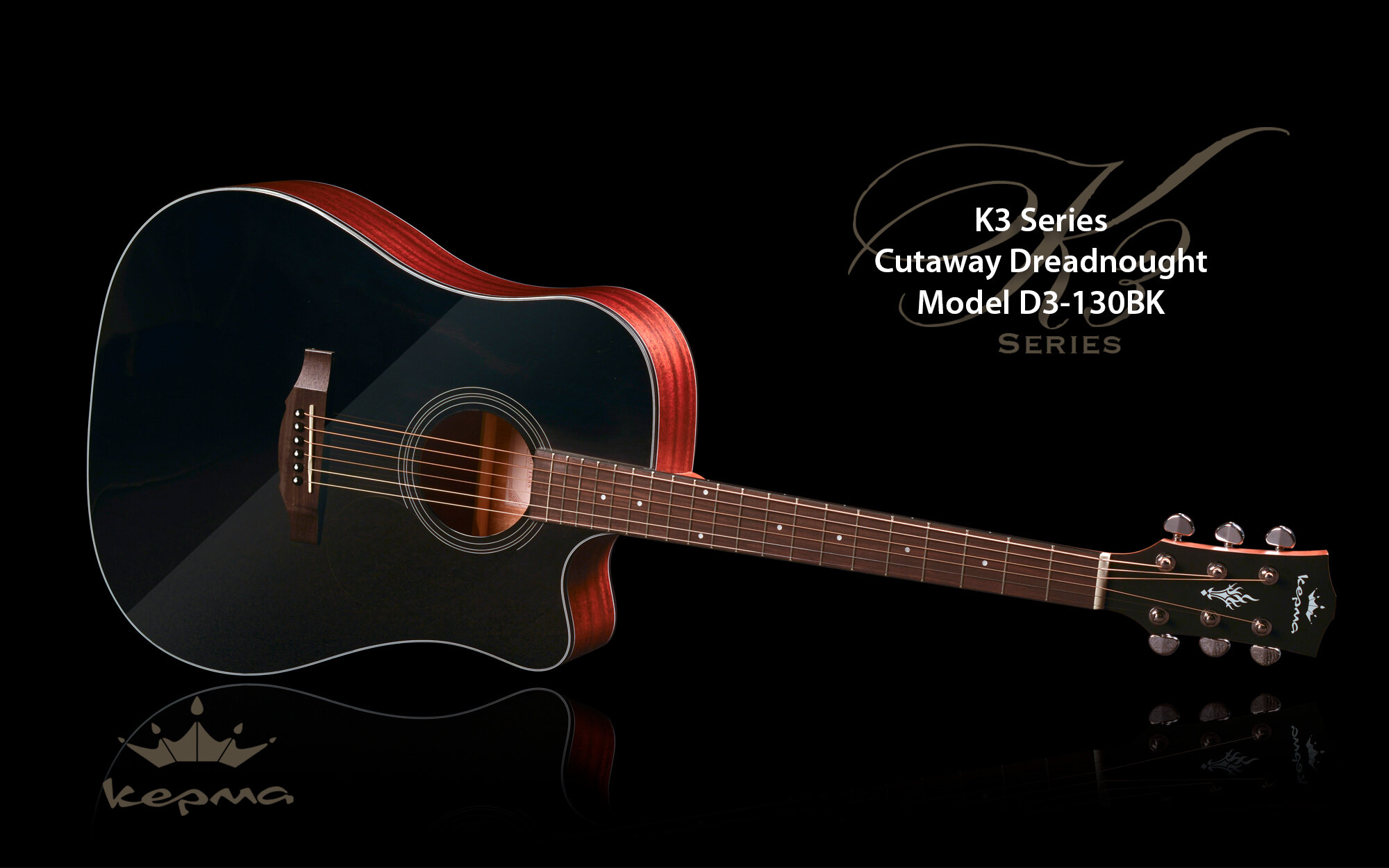
Cutaway Dreadnought D3-130 Models
Perhaps the most ubiquitous shape of a guitar is the dreadnought shape. We’ve taken the classic dreadnought and added access to the upper notes in a guitar that’s priced at “entry level, yet has all the features and build quality you’d expect from your third or fourth step-up instrument. Available in Natural, Sunburst, Walnut, Black and Transparent Blue, and as a pure acoustic or an acoustic electric with the Kepma K1 built-in tuner, pickup and preamp system.
Grand Auditorium GA3-130 Models
You won’t find another “Grand Auditorium” body shape in the industry with this level of precision, quality and sound at this price. The K3 Series GA3-130 models feature spruce tops, mahogany back & sides, mahogany neck and an unimaginable level of playability. Available in Natural, Sunburst, Walnut, Black and Transparent Blue, and as a pure acoustic or an acoustic electric with the Kepma K1 built-in tuner, pickup and preamp system.
Mini 36” M3-130 “3/4 Size” Models
Looking for a travel guitar or one for smaller hands? The M3-130 series fits the bill as a 3/4 size, 36” hybrid parlor/dreadnought body shape that features a spruce top, mahogany back & sides and mahogany neck. It’s available in a natural matte finish or a stunning matte tobacco sunburst top finish, and natural mahogany back & sides. The M3-130s deliver amazing tone and loudness for a smaller body guitar, and are also available as an acoustic electric with the optional Kepma K1 pickup system.
Let’s talk about guitar build quality and price…
What decides the cost of a guitar?
Okay, so let’s talk about guitar pricing. It’s easy to explain and differentiate the reasons why some guitars are priced thousands of dollars different from each other – basically higher end guitars have more expensive woods and take a lot more time to build. You have to consider the cost of materials, quality of manufacturing process, artisanship/craftsmanship, design, tone, etc. What’s not so obvious is how to tell the difference between similar priced guitars, especially at entry level pricing.
Let’s face it. It’s obvious that most entry level guitars offered by famous USA, European or Japanese brands are produced in China. It’s quite usual an experienced player will put one in their hands and simply get the feeling that the guitar is going to “come apart” at some point — they just feel “cheap”. Most of those brands buy their products from a handful of shared mass-produced guitar makers and simply apply their logo to the headstock. These factories run multiple brands of basically the same “model” with a few spec changes, then move to the next brand. They may claim some “innovative”, “unique”, “exclusive” feature but they really have no control over the manufacturing process, pricing, availability, and other factors since they do not “own” the factory.
So, what makes a difference in those similarly priced guitars is no longer the quality aspect of the product, but it’s based on the overhead, distribution costs, trading company expenses and even brand markup.
That’s why Kepma is different.
For more than a decade, Kepma has been the largest independent, non-OEM (meaning they make their own guitars, not someone else’s) acoustic guitar builder in all of China. A privately-held company owned by two young, daring builders, who now can produce more guitars than all USA-made acoustic brands combined. All under the Kepma name.
They had just never decided to export outside their country – until now, and much to the chagrin of several top, incredibly famous USA acoustic brands who sought out Kepma to become the builder of their notorious products. Offers were made, Kepma simply had to decline knowing the same guitars they offer you would simply be marked up to account for the associated costs.
So, what makes Kepma K3 Series special?
It starts with the wood. You know that you can grab a growing tree limb and easily twist or bend it. You also have picked up a dead branch and can easily snap it in half. Those are the two extremes in the life cycle of wood. Wood can dry out and lose moisture and it can also swell up once exposed to wetness.
To build a guitar, you need to have wood that is stable and able to withstand variations of moisture both added or removed. The ONLY way to accomplish this is to make a piece of wood that has a perfect relative moisture content that will allow it to accept humidity or aridness.
Kepma is the only guitar company on the planet that has a custom drying kiln that stabilizes the necks of each K3 guitar to an optimum moisture position. Five days of formulated temperature and “moisture cooking” make each K3 neck as solid as possible and able to withstand temperature and humidity variations without bending, bowing, or explosive sharp finger-cutting frets. So once string tension is applied to a Kepma K3 Series neck, it won’t bend like a wet pool noodle and make the guitar unplayable — it stays in its optimum position without warping or deformation - a very common affliction among entry level “cheap” guitars.
Modernistic Manufacturing
Kepma’s Elite Series guitars are known internationally for their exceptional precision in manufacturing processes which include banks of computer numeric controlled (CNC) machines, robotic assembly and finishing systems by ABB (the world’s most advanced robotic assemblers), precision laser cutting, etching and trimming and internally designed proprietary manufacturing methods. (Watch the video below to see the world’s most sophisticated guitar factory in action…)
The K3 Series is Kepma’s first series of guitars that follow in the same manufacturing footsteps as it’s bigger brother Elite series. This highly accurate and automated manufacturing process maximizes efficiency while producing a superior instrument in a mass-produced guitar assembly. And with production runs that are in the ten thousands versus dozens or hundreds, the end result is a more affordable, quality built product.
From Forest to Finished — The Kepma Wood Process
Because of ongoing production and research improvements, specifications and features may be updated, amended or enhanced without prior notification.
